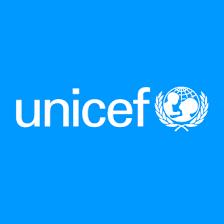The United Nations Children’s Fund (UNICEF) has revealed that, over 5.6 million residents of Oyo state lack decent toilets while more than 4.3 million people defecate openly.
Its call on the State government to fast-track its effort to meet its target of ending open defecation by 2028.
UNICEF confirmed this in Ibadan, Oyo state capital on Monday, during 2023 World Toilet Day celebration, organised by the Ministry of Environment and Natural Resources in collaboration with the Oyo State Rural Water Supply and Sanitation Agency and UNICEF Lagos Field Office
According to UNICEF Lagos Field Officer, Wash Specialist, Mr Monday Johnson, he said 83 per cent of motor parks and markets in the State also lack toilet facilities, despite open defecation’s effect on health, education, nutrition, and sometimes exacerbating poverty.
In his speech, Mr Johnson said UNICEF had supported two local governments in ending open defecation, but nothing happened, and it is time for the state to tackle the problem in the remaining 31 local governments.
Mr Johnson said that UNICEF had supported two local governments in ending open defecation, but nothing happened, and it is time for the state to tackle the problem in the remaining 31 local governments.
According to him, “UNICEF has only supported starting the programme in 2 LGAs, which means that 31 LGAs are still there with nothing happening. Now, it is time for Oyo State to pick up. Oyo State Rural Water Supply and Sanitation Agency has worked with UNICEF for the past 2 years; they now have the capacity.
“The Ministry of Environment is now coming in, and I am seeing that enthusiasm in the Commissioner, and everyone that is related to hygiene and sanitation should now come in to do something that will change the situation in Oyo.
“The open defection road map was to start in 2022 and end in 2028; Oyo State has not started, and almost 2 years are lost now. Oyo State only has about 2028 between now and 2028 to meet its target. So we need to work almost six times faster than we are now to be able to meet the target.”
Mr Johnson declared that one in four Nigerians still defecate in the open and that Nigeria is off track in meeting the Sustainable Development Goals, requiring that something be done to change the narrative.
Oyo State Commissioner for Environment and Natural Resources, Mr Mojeed Mogbanjubola, stated earlier in his keynote address that the World Toilet Day celebration was a call to action and a collective reminder of the responsibility to address access to proper sanitation as a basic human right.
He, however, said that sanitation is more than just toilets; it is about health, dignity, and equality because its absence ends up perpetrating a circle of disease, imparting education, and exacerbating gender inequality.
“Beyond the immediate human impact, inadequate sanitation practices have severe consequences for our environment, contaminate water sources, cause soil degradation, and release pollutants. So collaboration is key to changing the sanitation landscape. By working together, we can harness our collective strengths to implement sustainable solutions, share best practices, and drive positive changes within our communities.”











